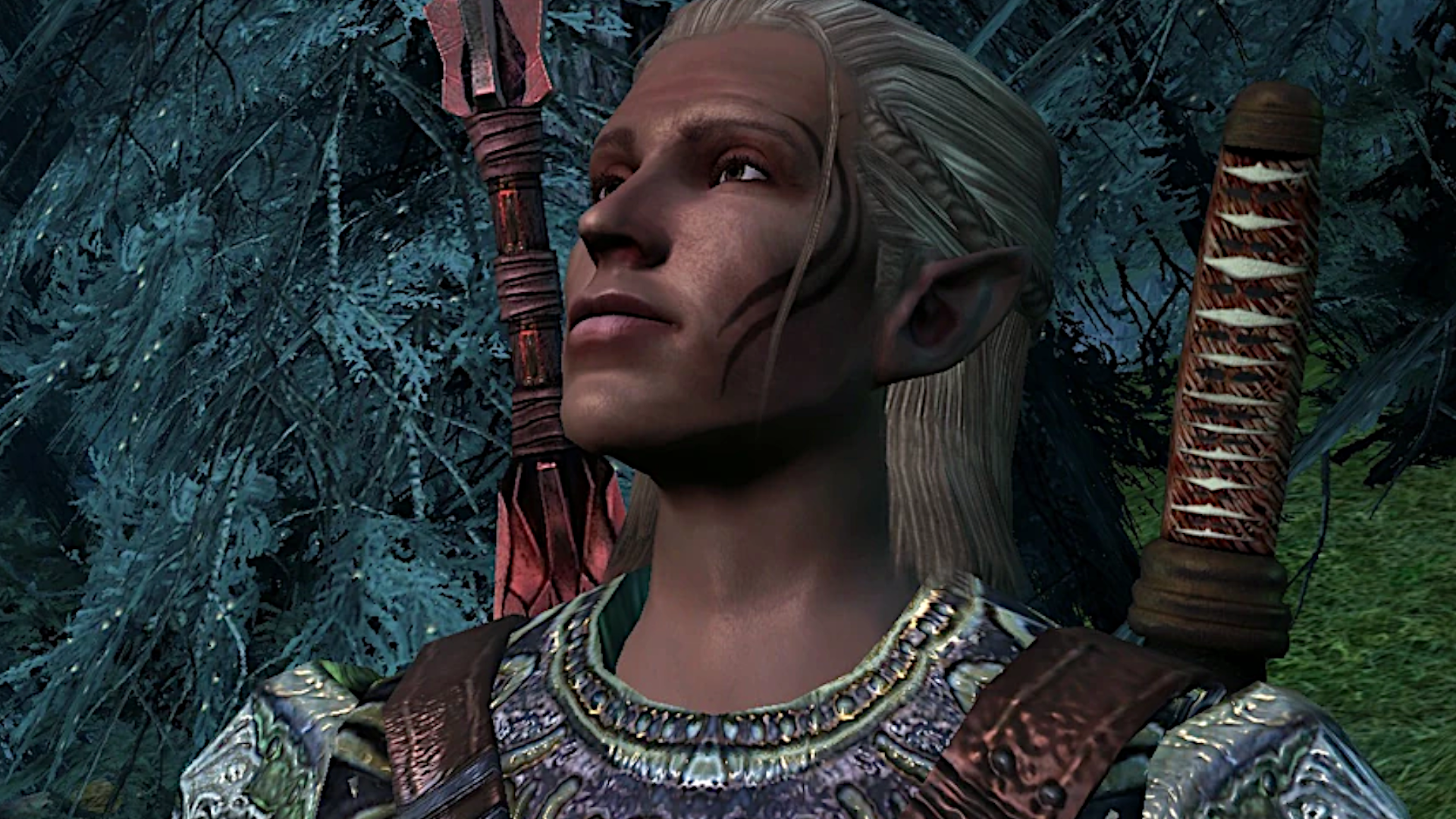
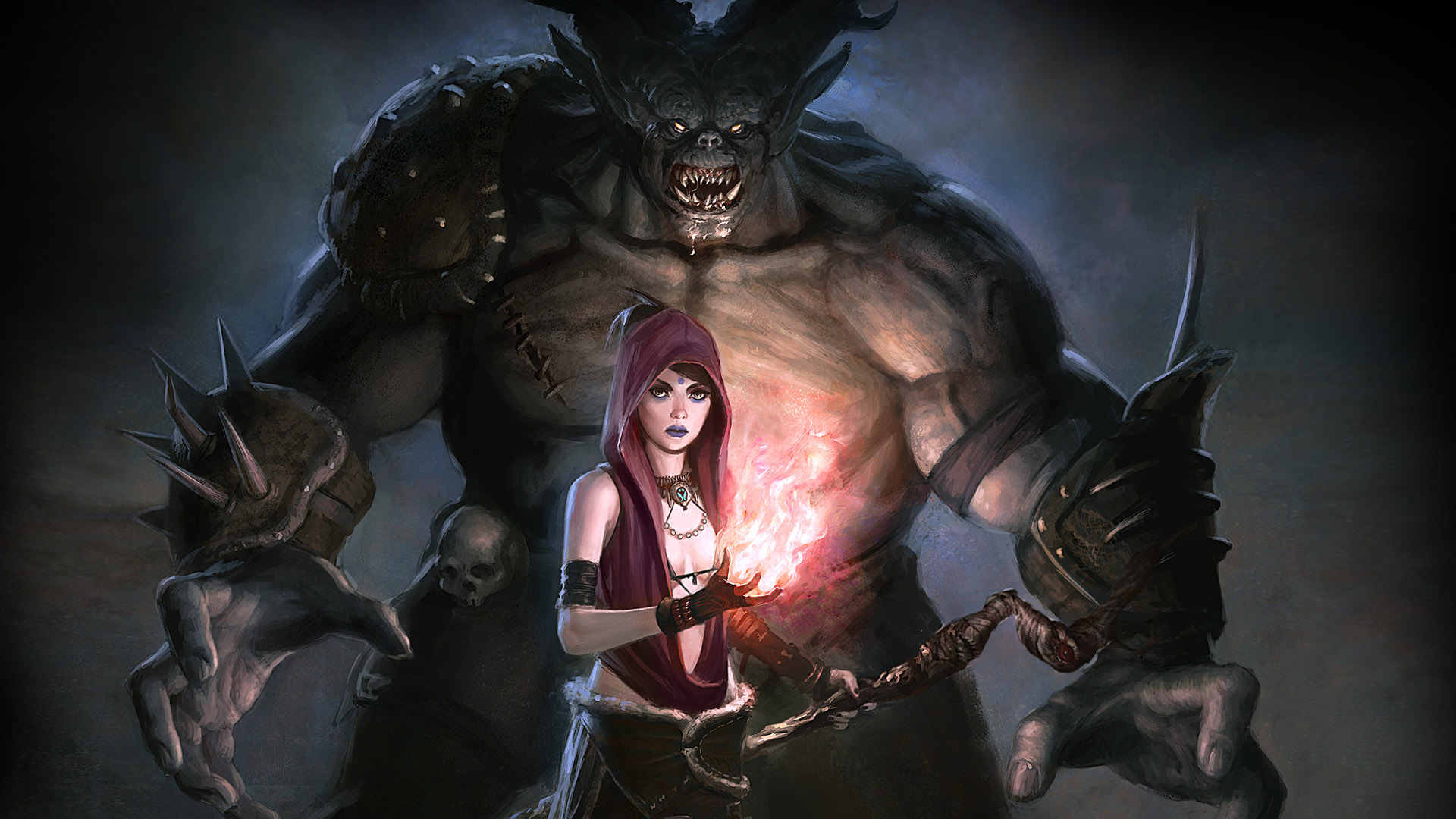
All this week we're looking back on the best of the Dragon Age series, to celebrate its 15th anniversary. We've got loads of great Dragon Age opinions and retrospectives, and we'll be adding more to the list in the days to come.
It might sound like stating the obvious, but queer representation—in games particularly, for some reason—is a thorny subject. As I myself am starting to nudge into my early 30s (oh, god) I'm beginning to notice that the wants and needs of younger gamers aren't quite aligning with my own.
In mulling over my views on Taash in Dragon Age: The Veilguard (a thing I am still doing), I couldn't help but feel nostalgic (given it's Dragon Age: Origins’ 15th anniversary this week) about the representation featured in that game—flawed and messy, certainly, but still remarkably bold for its time.
As evidenced by recent RPGs like Baldur's Gate 3 and The Veilguard's movement towards "playersexual" romances (I put that in quotes because The Veilguard's characters are all technically pansexual, though I feel like that's playersexuality with extra steps) the general desire for representation among my younger peers seems to have tilted away from being discussed, to being seen and comforted—which is both good and bad.
Playersexuality (which, to be clear, refers to characters whose sexual identity is undetermined until the player starts to flirt with them) has its benefits, of course. In the case of Baldur's Gate 3, it allows players to live out their own personal queer romances, and those romances can shed the baggage that might come from a writer psyching themself out about writing representation. Likewise, it doesn't necessarily stop canon sexuality from happening—Astarion will always, by default, be attracted to men, for example.
But I'm starting to feel a little disconnected from this kind of representation. Because—like my elders, who were doubtless confused by us cooking up a whole grab-bag of words a mere decade ago—I simply yearn for different things.
I didn't realise I liked men until I was 18, and that's mostly because, despite growing up in a very accepting family, I was also raised in a time where a layer of casual homophobia was the background radiation in everything. "Gay" was still flung around as an insult in schools, the Newgrounds-era internet was still a minefield of slurs and screamers, and mainstream media was still wrapping its brain around the ancient construct of bisexuality as… y'know, a thing that people could do.
Dragon Age: Origins, however, has two bisexual characters in it—two! Both Zevran and Lelianna are able to be romanced by male and female players, despite the game coming out in 2009. That's four years before gay marriage was even legalised in the UK, and six before the Supreme Court made gay marriage legal in the US. It's also the same year that the Matthew Shepard Act was passed by Congress, which expanded US hate crime laws to protect people's actual or perceived sexual orientation. To say the climate was messy or complicated is an understatement.
Zevran's writer, David Gaider, the former lead writer and creator of the Dragon Age setting who happens to be gay himself, gave a talk during Pax West 2019. He talked a little about BioWare's history with queer representation, as well as Origins pushing into new territory for the studio. His anecdote about Juhani, a lesbian character from Knights of the Old Republic, puts into stark view the ground that was being broken here: "She wasn't allowed to say 'I love you' or mention the word 'love' at all," Gaider said. It's easy to forget we've come a long way.
I'm struggling to find similar talks from Leliana's writer, Sheryl Chee—but her character similarly discusses themes of queer faith simply by being, well, queer, and having faith. I've never been particularly religious myself, and the church hangs over us in the UK far less than it does in the US. That being the case, here's a great little snippet from some analysis by Sara Khan for Gaymingmag I'd like to share:
"Leliana resists the violence of the Chantry as an institution. She expresses faith as resistance, as a queer thing. In both Origins and Inquisition, you gain Leliana’s approval through helping those in need and demonstrating your commitment to ending systemic oppression. In Inquisition the calm, collected spymaster pretty much only loses her cool when her anger at injustice compels her. Whether as Sister or as Left Hand of the Divine, she consistently uses her position within the Chantry to question, disturb, and queer its space."
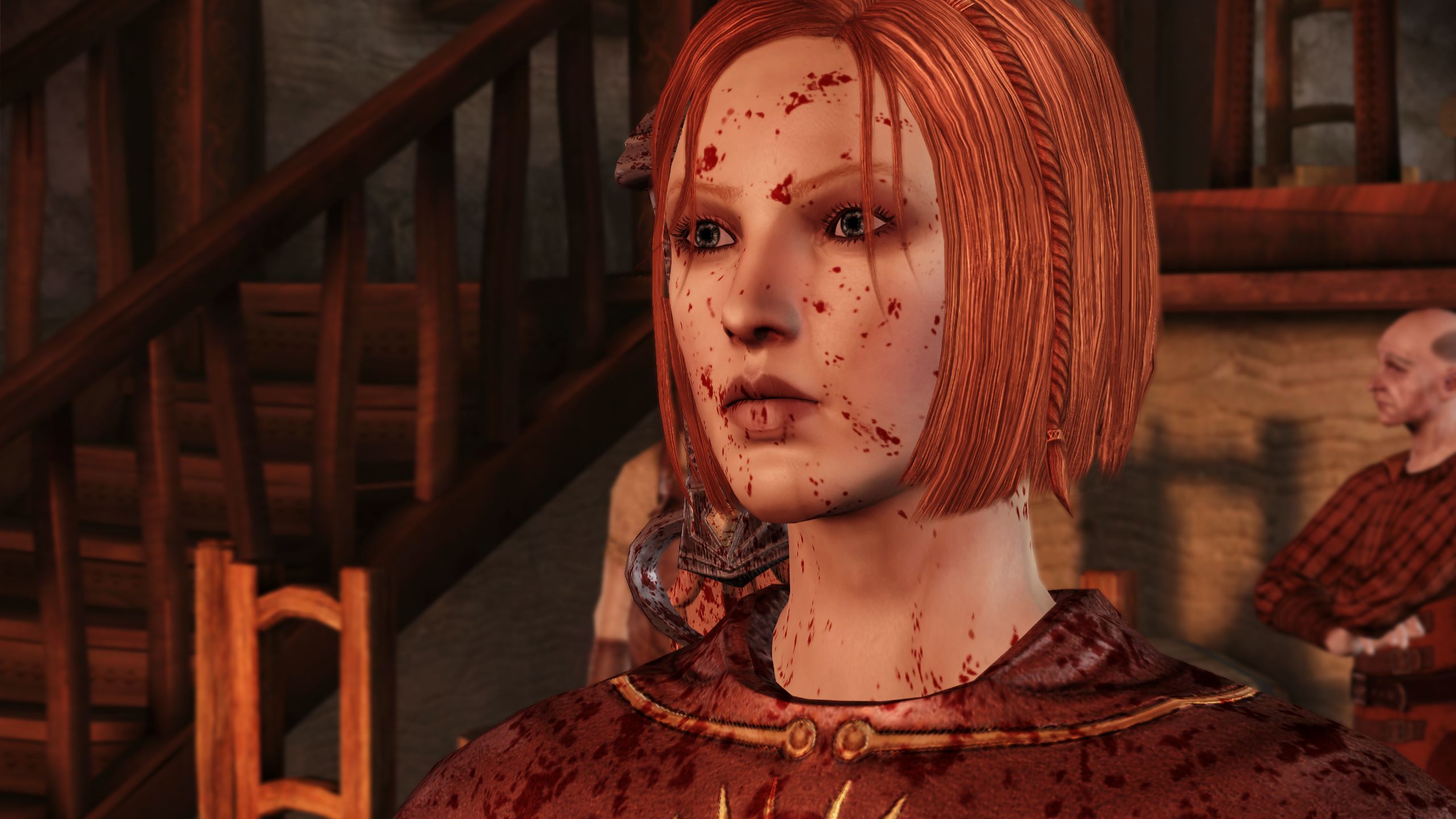
Khan also draws threads that I hadn't even considered before—for example, how the Chantry's treatment of mages has some deep connections to our real-life oppression. In particular, the act of making a mage "tranquil", effectively lobotomising them to make them docile and ‘safe’, has a horrific real-world parallel.
While people were lobotomised for a number of reasons during the US and UK's disturbing fascination with the "procedure"—an agony inflicted on around 20,000 victims by 1951—being gay was absolutely one of them. Leliana's queerness, with her deep connection to a Church who performs such analogous acts, is doubly fascinating as a result.
Regarding Zevran, Gaider added that "I initially asked if I could make Zevran gay—I'd been reading about how gay men were recruited by assassins in CIA and KGB, because they didn't have family—but James thought it would be better if the romances were bisexual so they could do double-duty, so to speak. And I thought 'fair enough, fair enough' … suddenly the idea of inclusivity was on the table. Before this, it hadn't remotely been part of the conversation."
The fact that BioWare was breaking new ground at the time was huge—but I can't help thinking about the Zevran that Gaider wanted to write. A fantasy character inspired by a knotty and disputed (usually by the CIA, which tracks) part of our history.
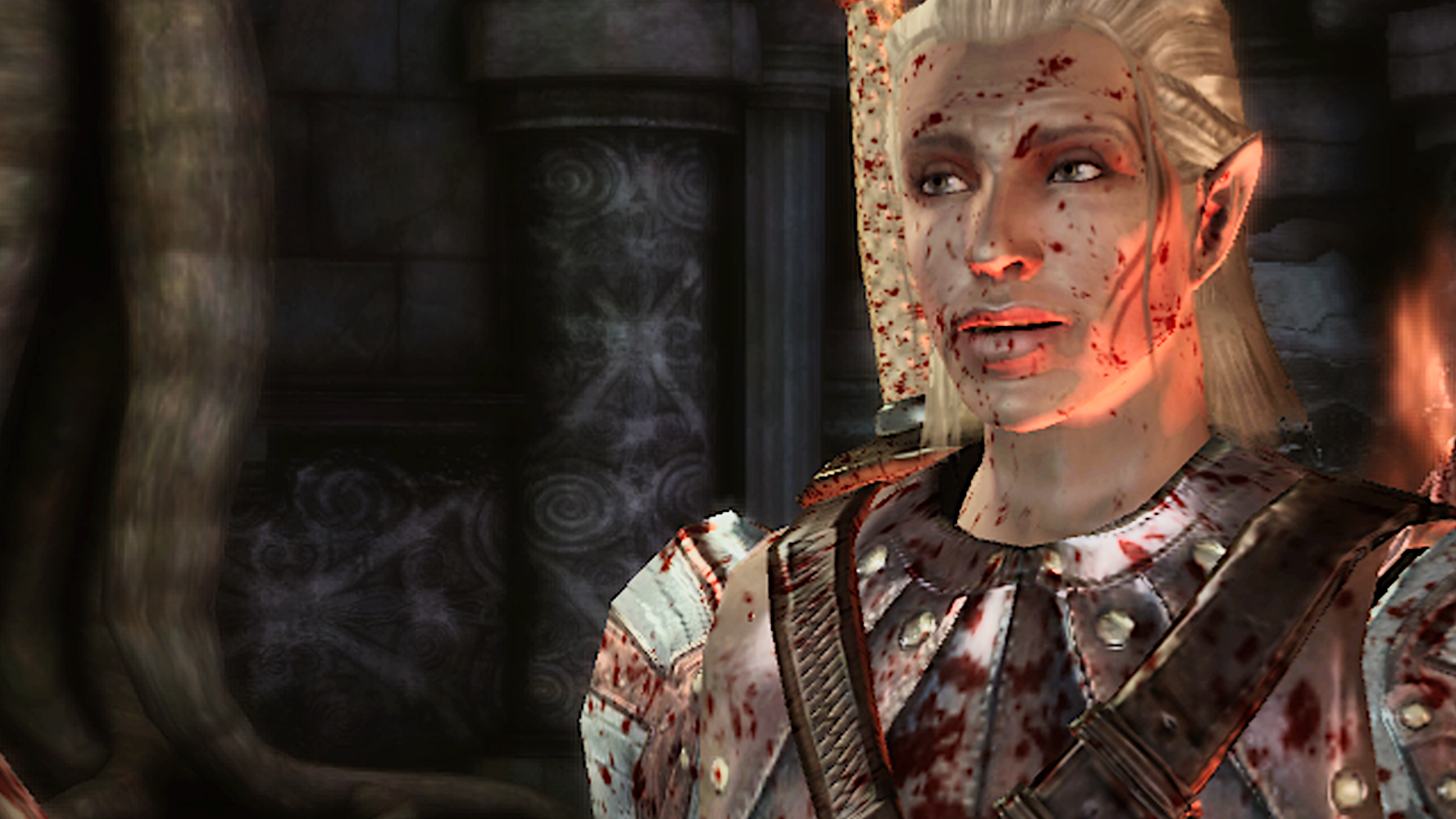
Gaider's talking about, among other things, the dark history of sexual warfare in secret agencies—the kind revealed in "The CIA and the Cult of Intelligence", written by former assistant to the deputy director of the CIA Victor Marchetti. An interview around the subject, as cited in this Reuters article from the ‘80s, reads:
"Soviet intelligence agents routinely cruise gay bars seeking candidates for blackmail who could be co-opted as spies, a spokesman for the CIA, another agency which is concerned about possible espionage, said … Former CIA official Victor Marchetti said in a separate interview that the United States employed similar techniques not only against Communists but in order to extract information from officials of allied governments who were ‘closet’ homosexuals."
I'm sad we didn't get to see this side of Zevran explored as overtly as it would be if he was gay, not bisexual, though it's not entirely absent—he clearly has experience in seducing his targets with the aim to slay them, but never having his true feelings, or existence, treated as something appropriate to express. As he puts it: "I grew up among those who sold the illusion of love, and then I was trained to make my heart cold in favour of the kill. Everything I have been taught says that what I feel is wrong."
Nonetheless, Gaider would later get to write Dorian in Dragon Age: Inquisition, and directly tackle the issue of conversion "therapy"—that is, attempting to torture a gay person into suppressing their sexuality—before he departed the developer in 2016.
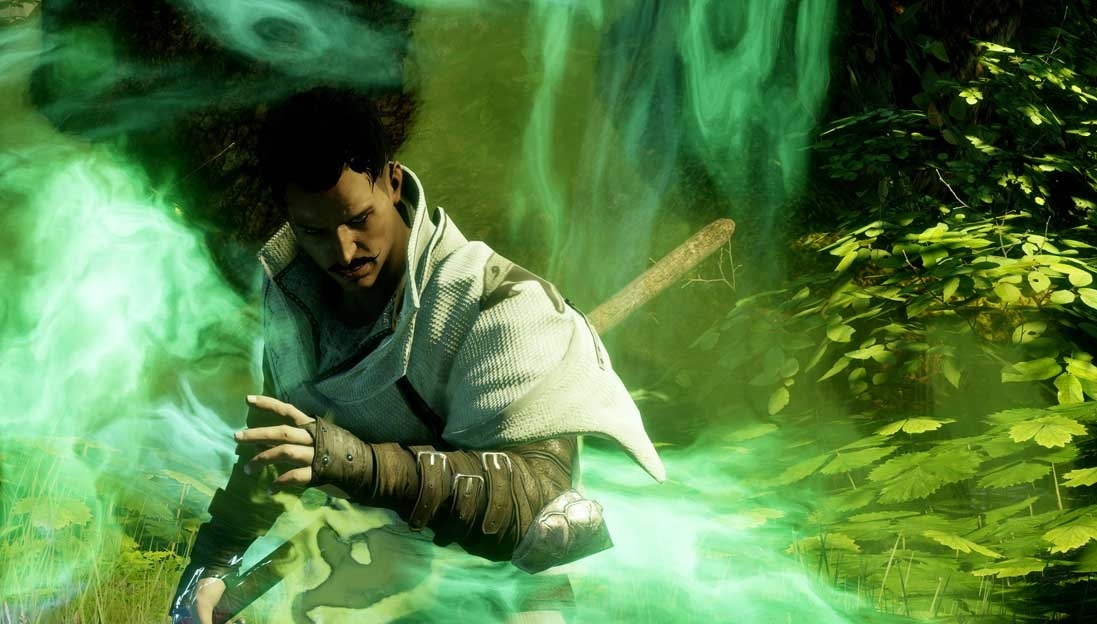
That's not to say that this representation was ever perfect. There's the obvious snag that, well, when Circle Mages are allowed to go unfettered, they do actually have a chance of being worn by a demon and murdering people—and considering a lot of homophobia is based on how "dangerous" we are… yeah, there are problems with reading Dragon Age that way.
Similarly, this is not a series with a great record representing trans people. In Origins, the Pearl brothel in Origins has a "surprise me" option wherein the player wakes up to find a dwarf dressed in drag, poised to be the butt of an uncomfortable and very poorly-aged joke. There were also some problems with deep-voiced drag queen Serendipity in Dragon Age 2, which even prompted writer Mary Kirby to apologise after accidentally writing a scene where, even if your character hasn't slept with Serendipity before, everyone involved seemed to be made uncomfortable by her sheer existence.
This kind of rep improved with Krem in Dragon Age: Inquisition—a huge stride to see a trans character normalised, though he was voiced by Jennifer Hale. While she does a good job, and being cast as such isn't inherently her fault, there are absolutely transmasc voice actors out there who could've been picked up for the role.
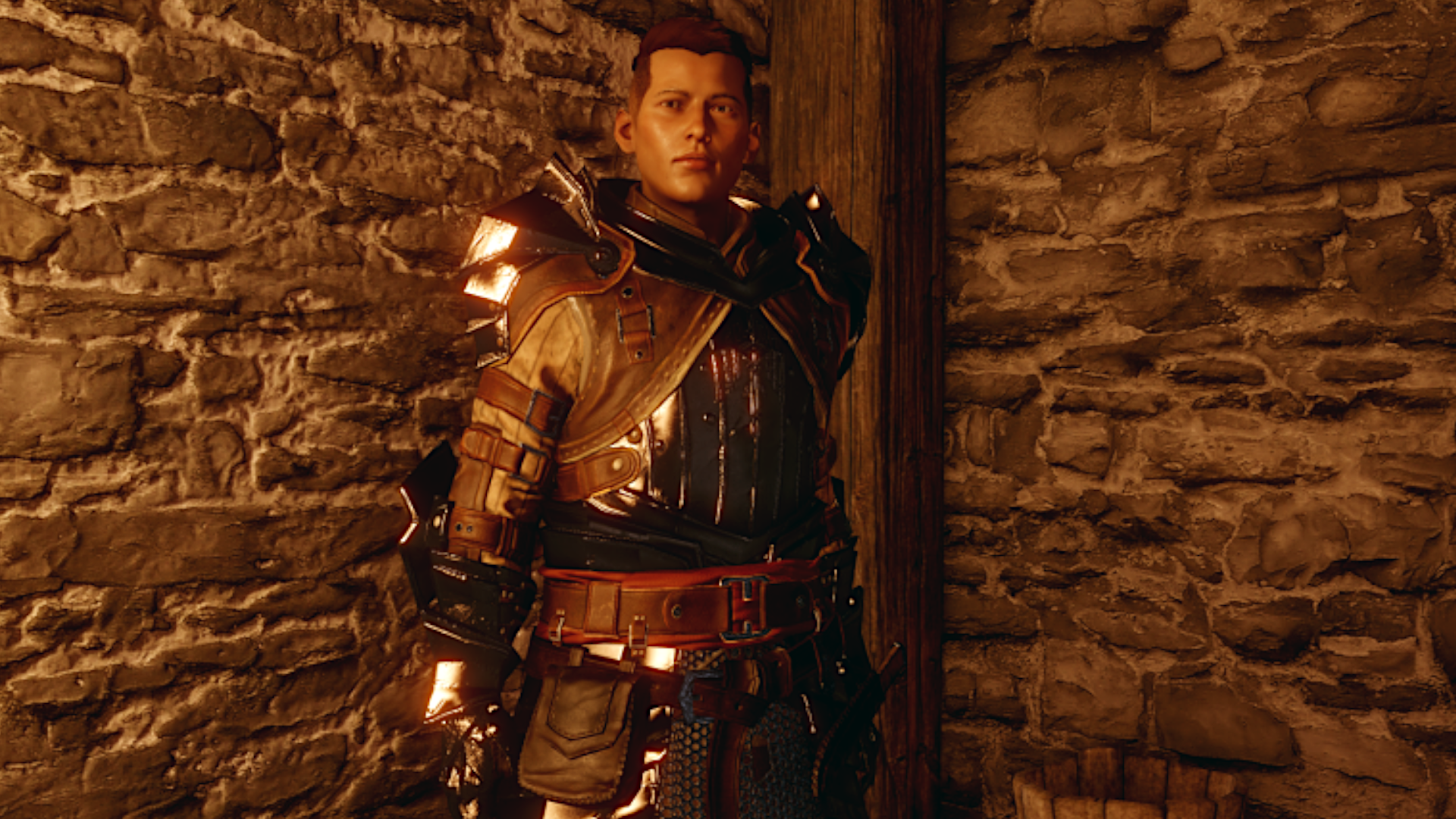
Still—I think what the early Dragon Age games did otherwise is commendable, and I'd rather have messy and imperfect representation than none at all (though the Pearl's "surprise" joke can be nuked into orbit). There's a part of me that misses these weird, gnarled undercurrents, too. I want complicated representation that gets at the heart of real-world issues. I like that Dorian explored some topics that were difficult to stomach, and I lament that Zevran's CIA-inspired backstory never fully intersected with his queerness in an overt way.
Looking ahead, while I think the sanitisation of these inclusive elements is a great comfort to many, I don't want RPGs to leave them by the wayside entirely. In the same way that we should get to tell stories in videogames that are validating, triumphant, and mostly clean of any identity-related trauma—I don't see why fantasy stories also can't continue to represent the messier and more complex facets of our existence. 2009 was a weird year, and not all of the weirdness of Dragon Age: Origin's queer representation is worth keeping… but some of it, at least, I miss.







